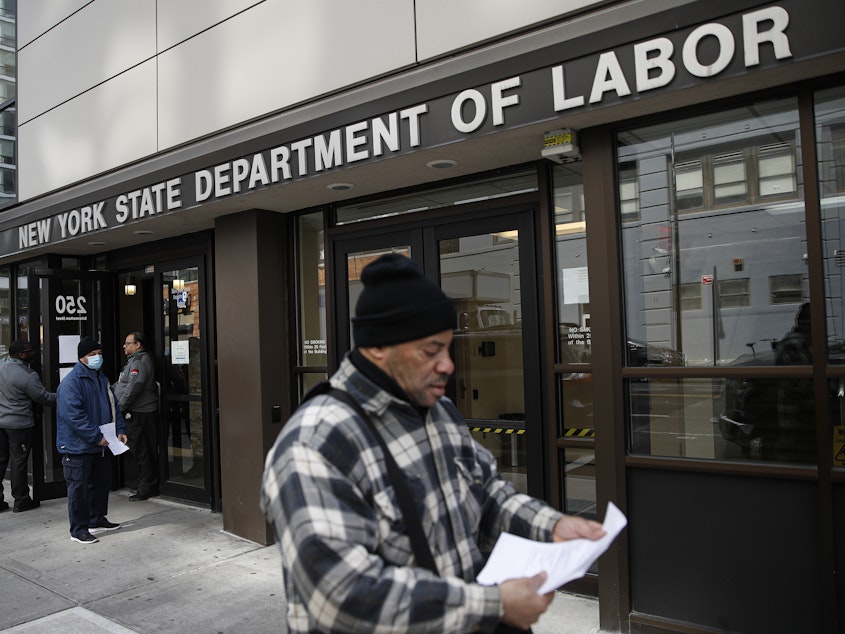The Economy Is Getting Hit Hard And The Forecasts Are Scary

The U.S. economy has never hit the brakes quite like this before.
While the course of the coronavirus pandemic is unpredictable, forecasters are beginning to make some educated guesses about just how bad the damage will be. The forecasts are not pretty:
Oxford Economics expects the U.S. economy to shrink at an annual rate of 12% in the next few months.
J.P. Morgan sees a second-quarter contraction of 14%.
Goldman Sachs warns of a jaw-dropping 24%.
Sponsored
By contrast, during the worst quarter of the Great Recession in late 2008, the economy shrank by 8.4%.
The first faint signal of what's ahead came Thursday, when the Labor Department reported a sharp jump in first-time claims for unemployment benefits. That's sure to be dwarfed next week, when the full effects of orders for Americans around the country to "hunker down" begin to show up in the data.
With restaurants, retailers and other gathering places closing their doors or shifting to skeleton operations, the ranks of the unemployed could easily grow by 2 million in a single week, said Ian Shepherdson of Pantheon Macroeconomics.
"But the margin of error at this point is deeply uncertain, and the number could be much higher," he added. Shepherdson expects the U.S. economy to shrink at an annual rate of 10% in the next few months. That's starting to seem optimistic.
J.P. Morgan's mid-range prediction of a 14% decline is far worse than anything Americans have seen, at least since the 1930s. (Quarterly data go back only as far as the late 1940s.)
Sponsored
"This would be the worst single quarter on record," said J.P. Morgan chief U.S. economist Michael Feroli.
Still, Feroli's forecast is relatively upbeat about how long the downturn will last. He expects economic activity to bottom out in April, then recover fairly quickly.
"Roughly speaking, it does look like in countries that experienced [the coronavirus] first, it kind of ran its course in about three months," Feroli said. "This is just a sudden freezing up of activity. If that freezing up unfreezes as the virus passes, we should be able to limit the economic damage."
Forecasters are also counting on Congress to act quickly to pass an economic rescue package valued a $1 trillion or more.
"Stimulus spending of this magnitude is not only warranted, but indispensable," said Nancy Vanden Houten of Oxford Economics. The firm predicts a 12% contraction in the second quarter.
Sponsored
The Trump administration has proposed sending two payments of $1,000 each to most adults, along with two payments of $500 each for children. Senate Republicans have drafted a bill with payments of up to $1,200 per adult.
Such payments could fill some of the hole left in the economy by the government's aggressive efforts to control the outbreak, while also "helping kick-start the economy post-virus," Vanden Houten said.
J.P. Morgan looks for unemployment to soar from 3.5% to 6.25% by mid-year. Painful as that would be, it's a marked improvement over the Great Recession, when unemployment reached 10%. Other forecasts see unemployment climbing as high as 9%.
J.P. Morgan's expectation of a quick economic rebound hinges on two assumptions: the U.S. outbreak doesn't drag on or recur later in the year, and Americans go back to spending quickly once quarantine orders are lifted.
Feroli acknowledges that neither of those is guaranteed. "Added on to the uncertainty of the virus is the uncertainty about the psychology that confronts the virus," he said. [Copyright 2020 NPR]



